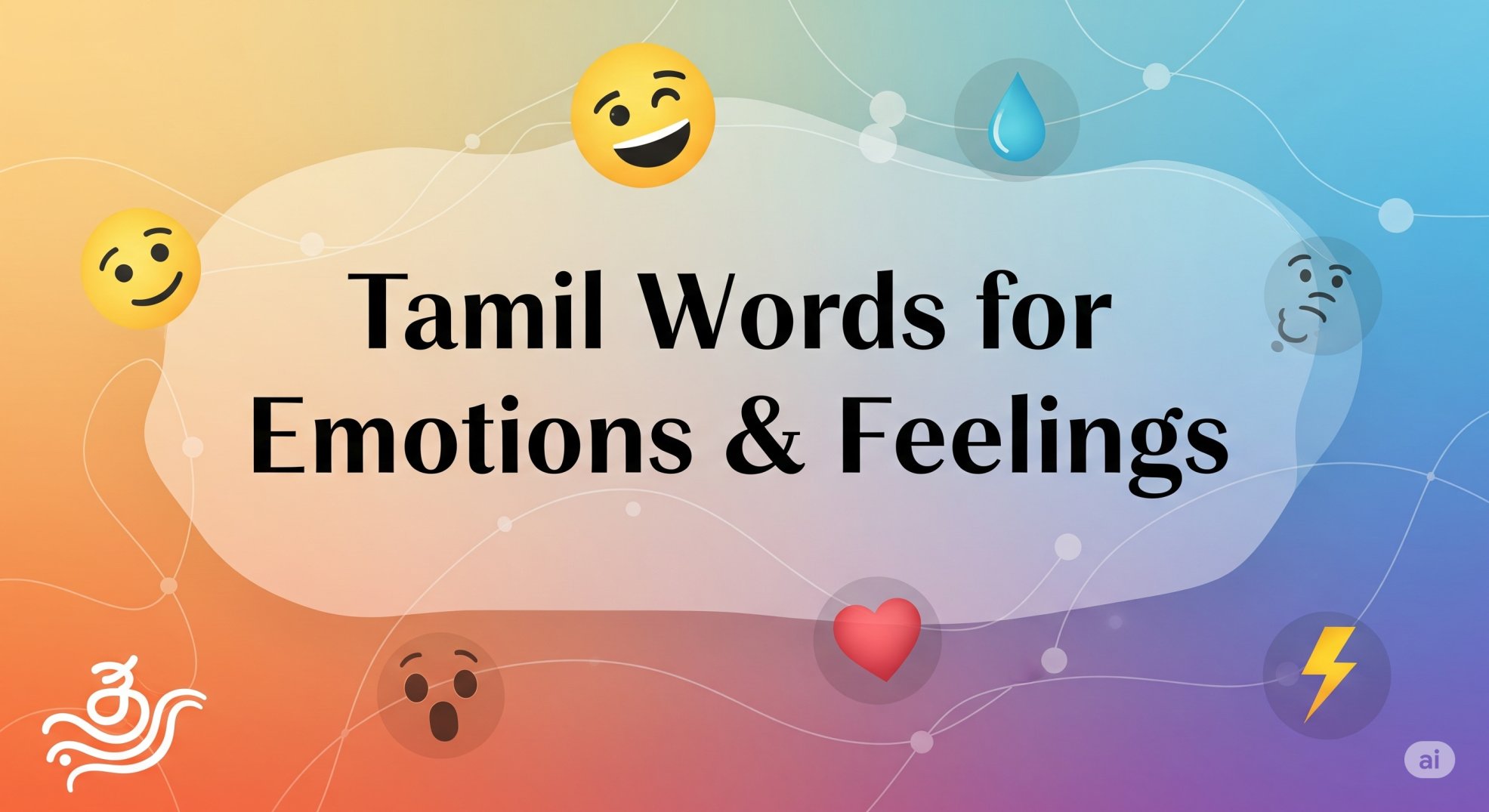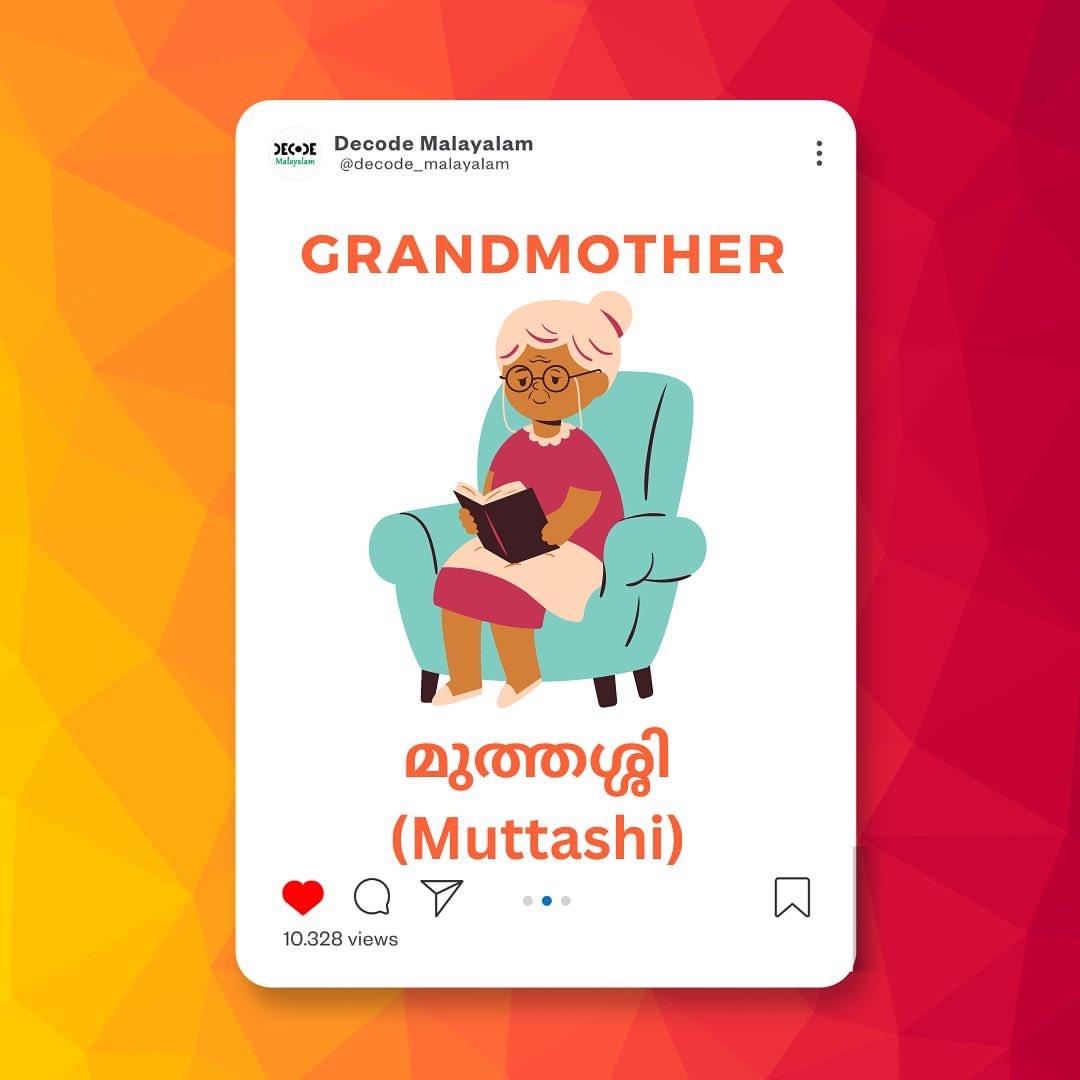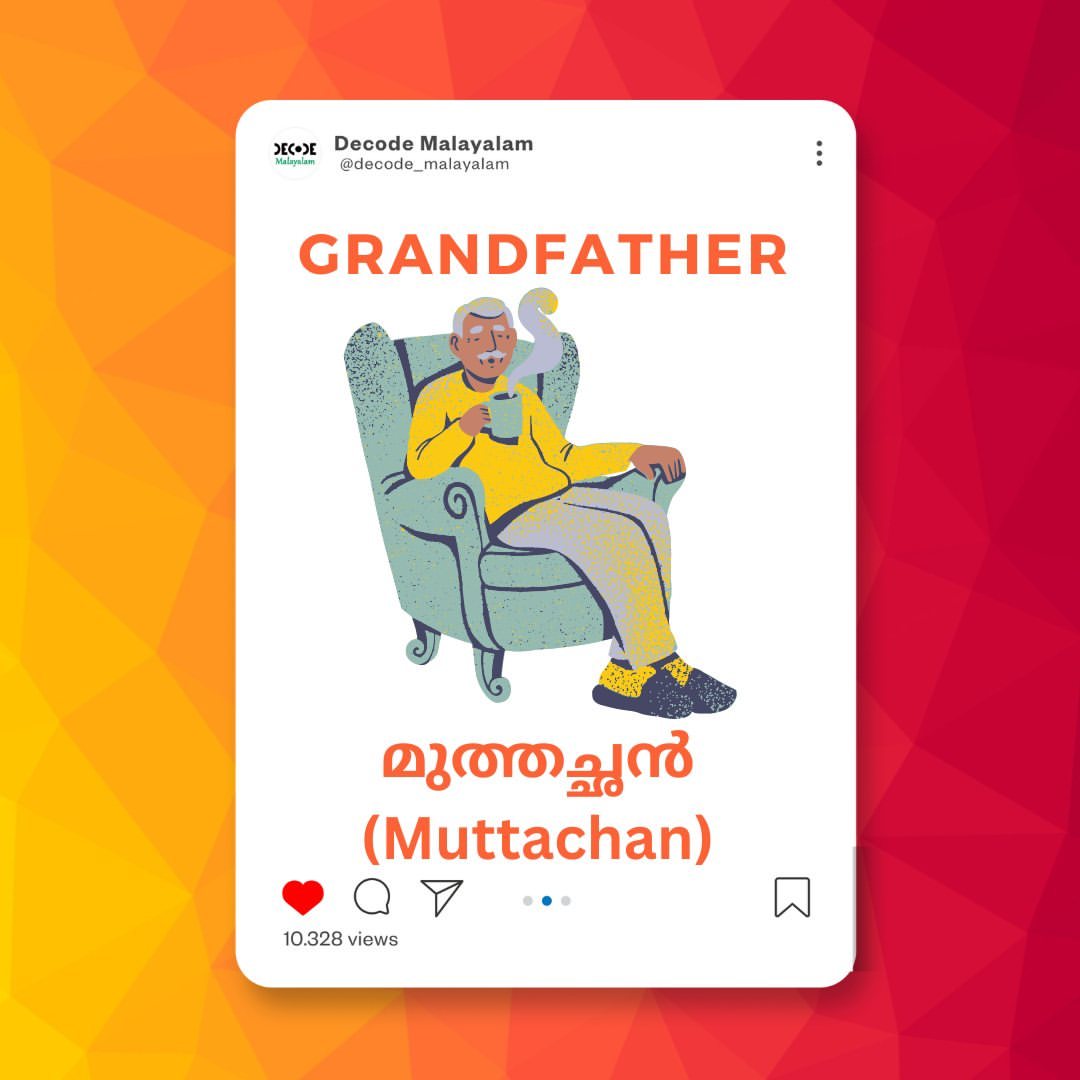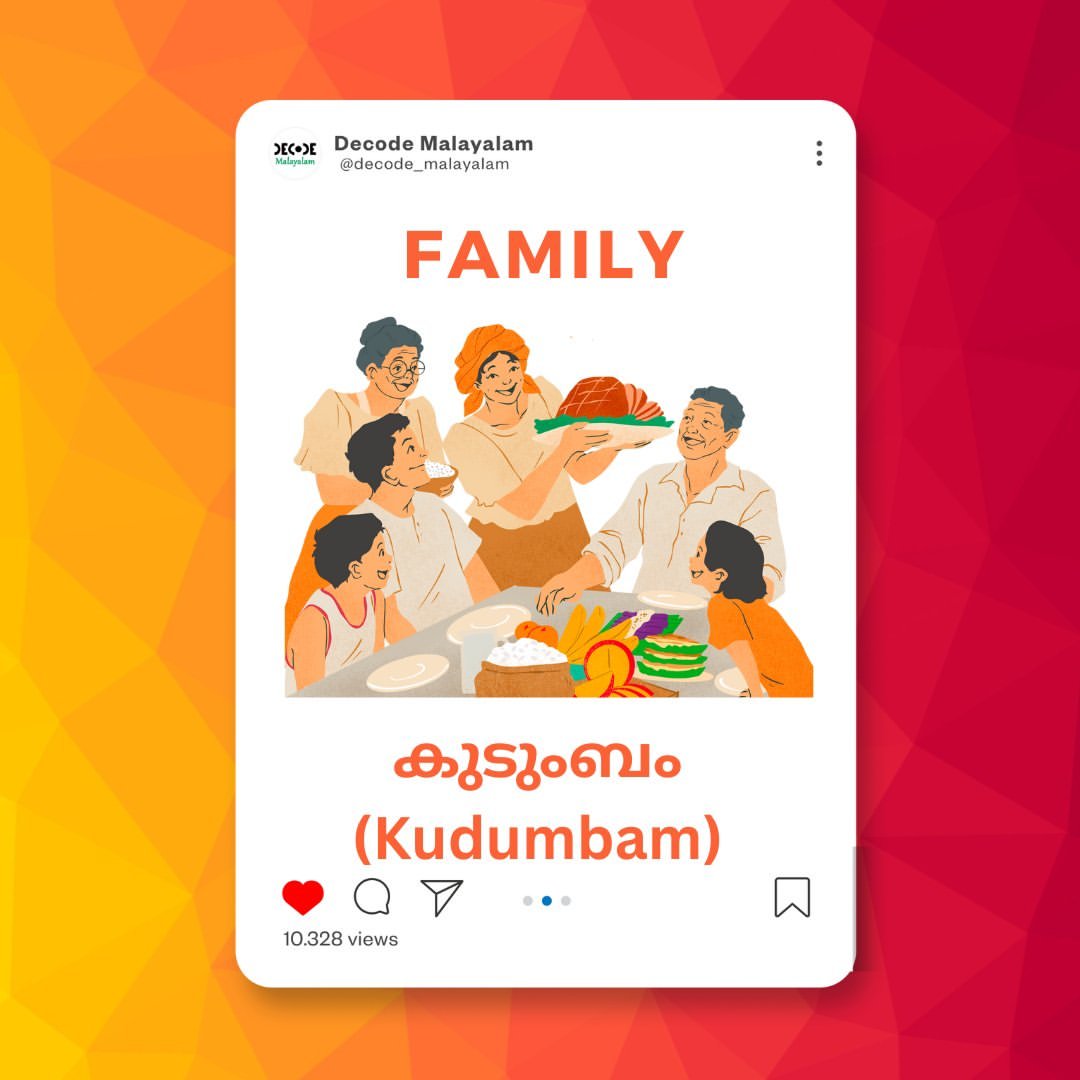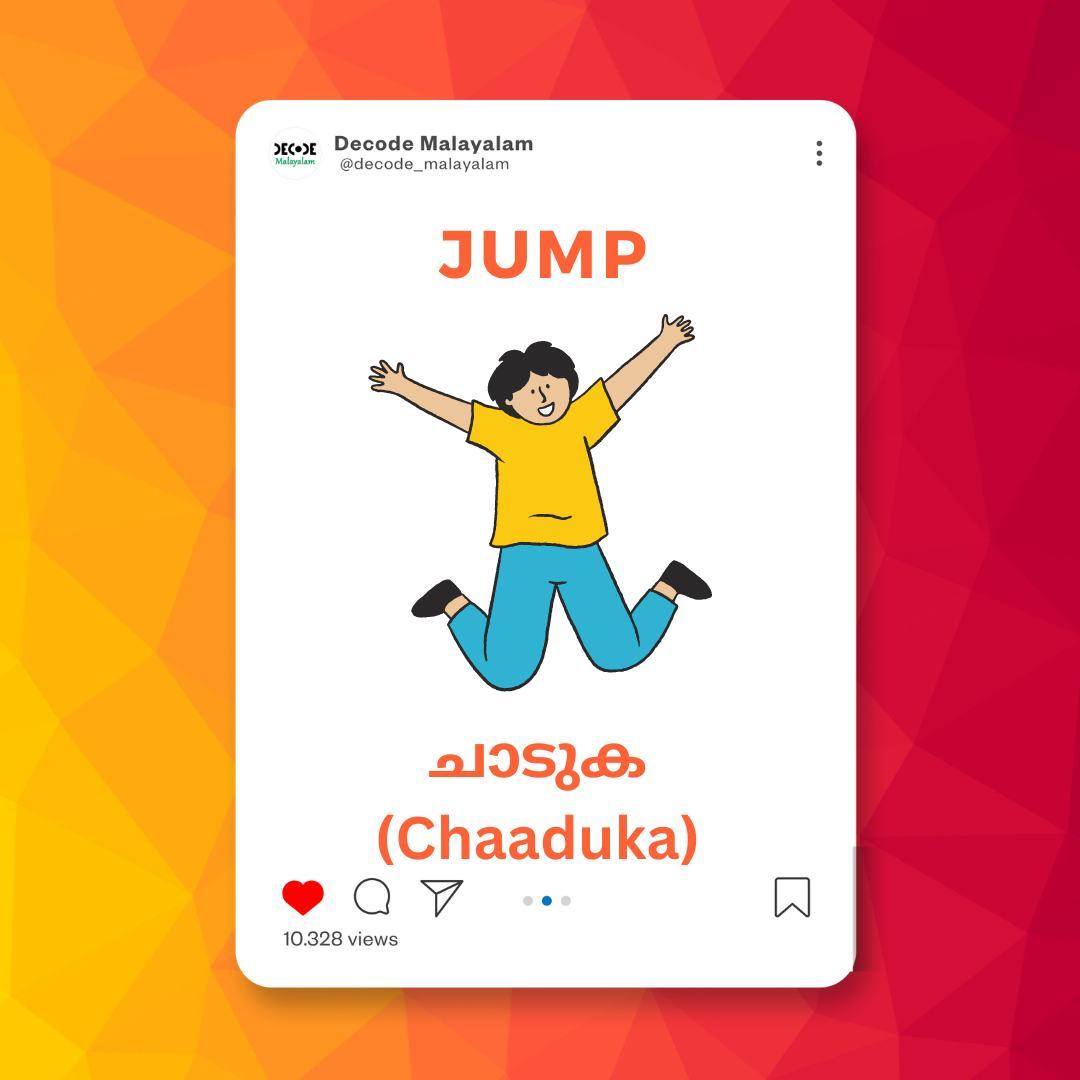Tamil Words for Emotions & Feelings: Express Yourself Fully
Navigate the nuanced world of human emotions in Tamil. A comprehensive guide for learners, teachers, and anyone seeking to connect on a deeper level.

Introduction: The Power of Expressing Emotions in Tamil
Language is more than just words; it’s a vessel for our deepest thoughts and, most importantly, our emotions. Learning **Tamil words for emotions & feelings** allows you to connect with others on a profoundly personal level, understand cultural nuances, and truly express your inner world. Whether you’re a language learner striving for fluency, a teacher looking for resources, or a psychologist interested in cross-cultural emotional expression, mastering emotions in Tamil is an invaluable step.
This guide will take you through a comprehensive list of **feelings words Tamil** speakers use daily, from basic happiness and sadness to more complex sentiments. We’ll provide the Tamil script, transliteration, and example sentences to help you not only understand but also effectively use these words in conversation. Let’s delve into the heart of the Tamil language!

Chapter 1: Basic Emotions in Tamil
Let’s start with the fundamental emotions that form the cornerstone of human experience. Understanding these simple **feelings words Tamil** will lay a strong foundation for more complex expressions.
| English Emotion | Tamil Word | Pronunciation | Example Sentence (Tamil) | Example Sentence (English) |
|---|---|---|---|---|
| Happiness | மகிழ்ச்சி | Magizhchi | நான் மகிழ்ச்சியாக இருக்கிறேன். | I am happy. |
| Sadness | துக்கம் / சோகம் | Thukkam / Sogam | அவள் துக்கமாக இருக்கிறாள். | She is sad. |
| Anger | கோபம் | Kobam | அவனுக்கு கோபம் வந்தது. | He got angry. |
| Fear | பயம் | Bayam | எனக்கு பயமாக இருக்கிறது. | I am afraid. |
| Surprise | ஆச்சரியம் | Aachchariyam | அது ஒரு பெரிய ஆச்சரியம். | That was a big surprise. |
| Disgust | அருவருப்பு | Aruvaruppu | எனக்கு அருவருப்பாக இருக்கிறது. | I feel disgusted. |
Pronunciation Tip: Pay attention to the ‘ழ’ (zha) sound in `மகிழ்ச்சி` (Magizhchi). It’s unique to Tamil and takes practice! Refer to our Tamil Pronunciation Guide for more help.
Chapter 2: Positive Emotions and Feelings
Expressing positive **emotions in Tamil** can brighten any conversation and help you build strong relationships. Here are more feelings words in Tamil that convey positivity.
| English Emotion | Tamil Word | Pronunciation | Example Sentence (Tamil) | Example Sentence (English) |
|---|---|---|---|---|
| Love | அன்பு / காதல் | Anbu / Kaathal | நான் உன்னை நேசிக்கிறேன். | I love you. |
| Joy | ஆனந்தம் / சந்தோஷம் | Aanantham / Santhosham | அவள் ஆனந்தமாக சிரித்தாள். | She laughed joyfully. |
| Peace | அமைதி | Amaidhi | எனக்கு மன அமைதி தேவை. | I need peace of mind. |
| Hope | நம்பிக்கை | Nambikkai | நம்பிக்கையை இழக்காதே. | Don’t lose hope. |
| Excitement | உற்சாகம் | Urchagam | நான் மிகவும் உற்சாகமாக இருக்கிறேன். | I am very excited. |
| Calmness | நிதானம் / அமைதி | Nithaanam / Amaidhi | நிதானமாக இருங்கள். | Be calm. |
| Contentment | திருப்தி | Thirupthi | எனக்கு முழு திருப்தி. | I am fully content. |
| Gratitude | நன்றி | Nandri | எனது நன்றியைத் தெரிவிக்கிறேன். | I express my gratitude. |
| Admiration | பாராட்டு | Paaraattu | அவளை நான் பாராட்டுகிறேன். | I admire her. |
| Pride | பெருமை | Perumai | அது என் பெருமை. | That is my pride. |

Chapter 3: Negative Emotions and Feelings
It’s equally important to learn how to articulate negative **emotions in Tamil**. This allows for a full spectrum of communication and deeper understanding.
| English Emotion | Tamil Word | Pronunciation | Example Sentence (Tamil) | Example Sentence (English) |
|---|---|---|---|---|
| Stress / Pressure | மன அழுத்தம் | Mana Azhuththam | எனக்கு மன அழுத்தம் உள்ளது. | I have stress. |
| Tiredness | சோர்வு | Sorvu | எனக்கு சோர்வாக இருக்கிறது. | I am tired. |
| Boredom | சலிப்பு | Salippu | எனக்கு சலிப்பாக இருக்கிறது. | I am bored. |
| Frustration | விரக்தி | Virakthi | அவனுக்கு விரக்தி அடைந்தது. | He felt frustrated. |
| Jealousy | பொறாமை | Poraamai | அவள் பொறாமையாக இருக்கிறாள். | She is jealous. |
| Guilt | குற்ற உணர்வு | Kutra Unarvu | எனக்கு குற்ற உணர்வு இருந்தது. | I felt guilty. |
| Shame | வெட்கம் | Vetkam | அவன் வெட்கப்பட்டான். | He was ashamed. |
| Loneliness | தனிமை | Thanimai | நான் தனிமையாக உணர்கிறேன். | I feel lonely. |
| Anxiety | கவலை | Kavalai | அவனுக்கு கவலை அதிகமாக உள்ளது. | He has a lot of anxiety. |
| Disappointment | ஏமாற்றம் | Emaattram | எனக்கு ஏமாற்றமாக இருந்தது. | I was disappointed. |
| Regret | வருத்தம் | Varuththam | அவனுக்கு வருத்தம் ஏற்பட்டது. | He felt regret. |

Chapter 4: Nuanced & Complex Feelings Words Tamil
Beyond the basic categories, Tamil offers a rich vocabulary for more subtle and complex **feelings words Tamil** speakers use. These words help express deeper emotional states.
| English Feeling | Tamil Word | Pronunciation | Example Sentence (Tamil) | Example Sentence (English) |
|---|---|---|---|---|
| Comfort | ஆறுதல் | Aaruthal | அவன் அவளுக்கு ஆறுதல் அளித்தான். | He comforted her. |
| Compassion | கருணை | Karunai | அவனுக்கு கருணை உள்ளது. | He has compassion. |
| Empathy | சகானுபூதி | Sagaanuboothi | அவள் சகானுபூதி கொண்டாள். | She had empathy. |
| Nostalgia | பழைய நினைவுகள் | Pazhaiya Ninaivugal | எனக்கு பழைய நினைவுகள் வந்தன. | I felt nostalgic (old memories came). |
| Longing / Yearning | ஏக்கம் | Yekkam | அவளுக்கு ஏக்கம் இருந்தது. | She had a longing. |
| Awe / Wonder | வியப்பு | Viyappu | அவன் வியப்புடன் பார்த்தான். | He looked with awe. |
| Enthusiasm | ஆர்வமாக | Aarvamaaga | அவன் ஆர்வமாக இருந்தான். | He was enthusiastic. |
| Vulnerability | பாதுகாப்பற்ற உணர்வு | Paathukaappatra Unarvu | அவள் பாதுகாப்பற்ற உணர்வுடன் இருந்தாள். | She felt vulnerable. |
| Determination | திடமான எண்ணம் | Thidamaana Ennam | அவனுக்கு திடமான எண்ணம் இருந்தது. | He had determination. |
| Relief | நிவாரணம் / நிம்மதி | Nivaaranam / Nimmathi | எனக்கு நிம்மதி ஏற்பட்டது. | I felt relief. |

Chapter 5: Expressing Emotions in Sentences (Practical Usage)
Knowing the individual **Tamil words for emotions** is one thing; using them naturally in sentences is another. Here’s how you can weave these words into your conversations.
Using “I feel…” or “I am…”
The common structure is `எனக்கு … ஆக இருக்கிறது` (Enakku … aaga irukkiradhu) or `நான் … ஆக இருக்கிறேன்` (Naan … aaga irukkiraen).
- I am happy: எனக்கு மகிழ்ச்சியாக இருக்கிறது. (Enakku magizhchiyaaga irukkiradhu.)
- I am tired: நான் சோர்வாக இருக்கிறேன். (Naan sorvaaga irukkiraen.)
- He is angry: அவன் கோபமாக இருக்கிறான். (Avan kobamaaga irukkiraan.)
For more on sentence structure, check out our Simple Guide to Tamil Grammar for Beginners.
Asking About Feelings
To ask someone how they are feeling, you can use:
- How are you feeling? நீங்கள் எப்படி உணர்கிறீர்கள்? (Neengal eppadi unargireergal?)
- Are you sad? நீங்கள் துக்கமாக இருக்கிறீர்களா? (Neengal thukkamaaga irukkireergalaa?)
Chapter 6: Cultural Nuances of Expressing Emotions in Tamil
In Tamil culture, emotions are often expressed with a certain degree of subtlety, especially in public. While it’s perfectly fine to express joy or gratitude openly, intense negative emotions might be shown more reservedly, particularly in formal settings. Understanding these subtle cues will enhance your communication.
- Respectful Communication: When speaking to elders or those in positions of authority, it’s customary to use more formal language, even when discussing feelings. This adds a layer of politeness to your emotional expression.
- Non-Verbal Cues: Pay attention to facial expressions, body language, and tone of voice. Often, more is conveyed through these non-verbal signals than through words alone.
- Emphasis on Community: Emotions like empathy and compassion are highly valued in Tamil society, reflecting a strong communal spirit.
Explore More on Decode Tamil:
- Common Tamil Phrases for Daily Conversations
- Basic Tamil Words for Beginners
- Learn Tamil Through English: A Comprehensive Path
- Occupation Names in Tamil (for expanding vocabulary in various contexts)
Master Your Emotional Vocabulary in Tamil!
Learning to express your emotions in Tamil is a powerful step towards true fluency and cultural immersion. Practice these words regularly, use them in your conversations, and don’t shy away from expressing your authentic self. Your journey to understanding and communicating effectively in Tamil is a rewarding one!
Continue Your Learning Journey!

